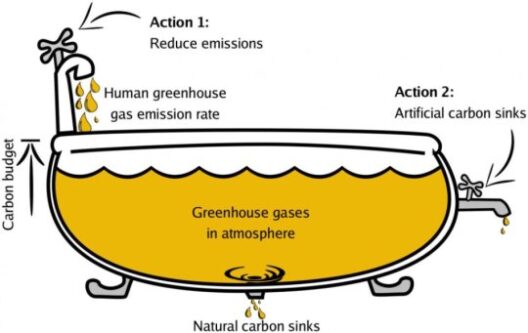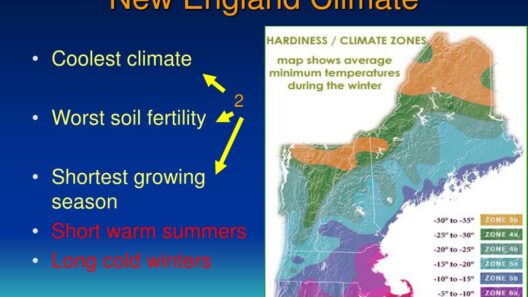As the climate crisis continues to escalate, an increasing number of individuals are grappling with a phenomenon known as eco-anxiety. This term encapsulates the pervasive feelings of dread, helplessness, and apprehension related to environmental degradation and climate emergencies. As climate change becomes more tangible, these emotions are palpable and becoming a shared experience across generations. To navigate this complex emotional landscape, it is vital to transform that anxiety into actionable hope and productive engagement.
Living in a world dominated by climatic instability often leads to a sense of melancholy and trepidation. Eco-anxiety can manifest in diverse ways—a general unease about the future, heightened stress in the face of natural disasters, or pervasive worry over the state of the planet. People of all ages report feeling overwhelmed by the continuous stream of distressing news: polar ice caps melting, wildlife extinction rates soaring, and increasingly frequent wildfires and hurricanes. These gnawing concerns may prompt an introspective journey into one’s role in the ecosystem.
Yet, while acknowledging the immersive nature of eco-anxiety, it is equally crucial to pivot toward a more constructive mindset. Understanding and addressing eco-anxiety can serve as a bridge, connecting personal emotions to the wider communal efforts needed to combat climate change. Herein lies the promise of reframing our internal landscape: rather than succumbing to hopelessness, individuals can cultivate resilience and agency through informed action.
**Recognizing Triggers**
The first step in managing eco-anxiety is to identify its triggers. These can range from graphic images of environmental destruction to reports on carbon emissions. However, triggers also include personal experiences, such as witnessing natural disasters or enduring seasonal shifts. By recognizing these sources of discomfort, individuals can foster a sense of control. Reflection prompts, journaling, or discussions with trusted friends can facilitate this process. With awareness, the path toward constructive engagement opens up.
**Informed Consumption**
Knowledge is a powerful antidote to fear. One of the most effective strategies in confronting eco-anxiety is to become an informed citizen. Individuals must familiarize themselves with credible scientific findings concerning climate change, its implications, and the solutions being proposed. Understanding the causes and effects of climate change can deconstruct fear into tangible issues that can be tackled. It is also important to recognize the many innovative responses being initiated worldwide—from renewable energy technologies to regenerative agriculture—that exemplify the resilience of the human spirit in the fight against environmental degradation.
**Community Engagement**
Connecting with like-minded individuals can lessen the burden of eco-anxiety. Finding a community—even a virtual one centered around ecological issues—can foster camaraderie and shared resolve. Engaging in collective action amplifies individual voices, transforming despair into determination. Community gardens, local climate action groups, or environmental volunteer days can provide support and a sense of belonging. As collective momentum grows, the emotional weight of eco-anxiety may diminish, replaced by a shared vision for sustainability and restoration.
**Mindfulness and Nature**
Amidst this turmoil, embracing mindfulness and returning to nature can serve as a salve for anxious minds. Mindfulness practices encourage individuals to stay present, alleviate stress, and diminish ruminative thinking. Activities such as meditation, yoga, or simple deep-breathing exercises can ground the mind in moments of uncertainty. Furthermore, spending time in green spaces—parks, forests, or gardens—allows for reconnection with nature, serving as both a reminder of our planet’s beauty and an impulse to protect it. Engaging with the environment in this way helps foster a personal sense of responsibility toward its preservation.
**Sustainable Practices**
Implementing sustainable practices in daily life can be a powerful remedy for eco-anxiety. Whether it’s reducing plastic consumption, opting for a plant-based diet, or utilizing public transportation, each step taken toward sustainability reinforces a sense of agency. The ‘small action, big impact’ philosophy empowers individuals by reminding them that even minor lifestyle shifts contribute to a larger collective goal. Taking personal actions can transform feelings of powerlessness into proactive involvement in positive change.
**Advocacy and Education**
Another avenue for overcoming eco-anxiety is to engage in advocacy and education. Advocating for policies that support environmental sustainability and educating others about climate change can transform anxiety into motivation. Writing to local representatives, participating in advocacy campaigns, or hosting informational sessions can create ripples of awareness and influence. Far beyond individual emotions, these actions serve to galvanize community response and tuition around the importance of ecological preservation.
**Embracing a Holistic Perspective**
Finally, embracing a holistic perspective allows for a profound shift in understanding the interconnectedness of life. Recognizing that personal well-being and planetary health are inextricably linked can assuage feelings of isolation and helplessness. This interconnectedness imbues individual actions with greater meaning and purpose. Eco-anxiety might signal a deep-seated connection to the environment—a recognition that one’s mental, emotional, and physical health are intertwined with the health of the Earth.
In conclusion, eco-anxiety is an intrinsic response to the unprecedented challenges posed by climate change. Rather than succumbing to feelings of despair, individuals have the opportunity to engage, educate, and advocate for a sustainable future. By shifting perspectives and embracing collective action, the anxiety that stems from ecological threats can transform into a force for positive change. Awareness, community engagement, sustainable living, and advocacy work harmoniously to reframe eco-anxiety as not merely a burden but a call to action. Ultimately, the journey through eco-anxiety nurtures resilience, hope, and a profound dedication to stewarding our planet for generations to come.








